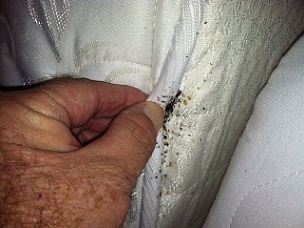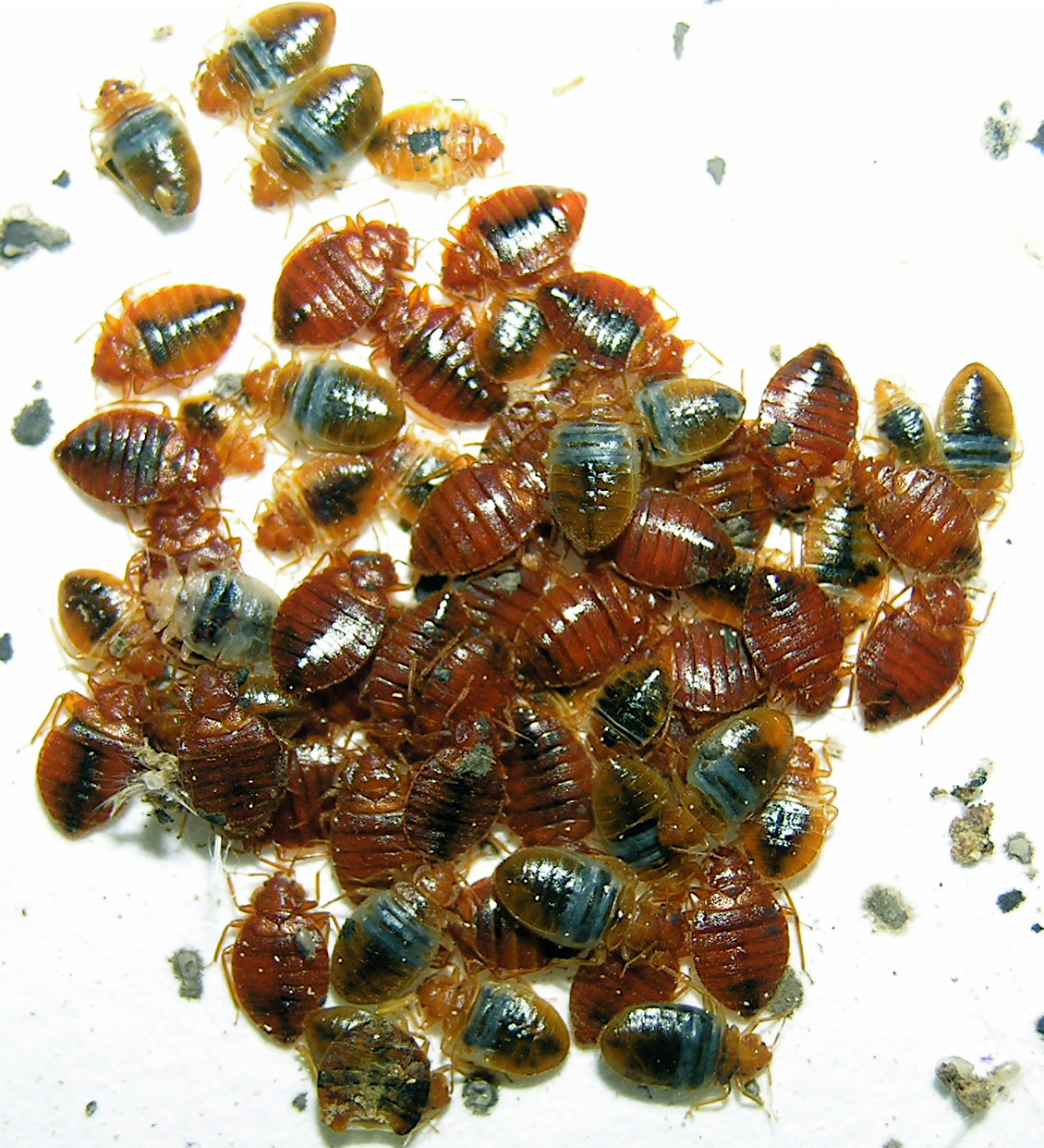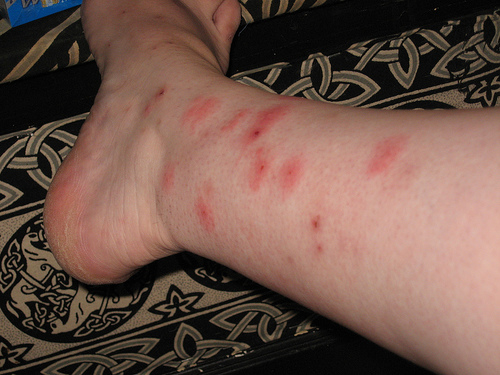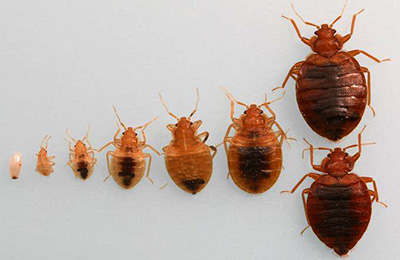BED BUG INFORMATION

They want to suck your blood....
The odds are you've found yourself reading this because you want to get rid of bed bugs NOW. We manufacture bed bug insecticide sprays that are powerful weapons in the war against bed bugs, and we offer personalized support to our customers for their specific situations.
How Do You Know You Have Bed Bugs?
Most people suspect that there's a bug problem when they or others inhabiting a space wake up with red, itchy bug bites on their bodies. There are a number of bugs that will bite people in the night including: fleas, spiders, mosquitoes, and mites. Some bites acquired outdoors (especially during warm seasons) don't show up immediately such as those by chiggers and other insects, in those cases the bites usually make a single appearance. The main clue that there is a problem in a home, business or institution is that new bites continuously appear over days, then weeks, even months before the problem is recognized. Spider and mosquito bites are generally not recurring in the same ways as those by bedbugs, fleas, and some mites. If you are seeing frequent bug bites in the mornings that are itchy and red on the neck, arms, shoulders, bellies, legs and ankles, check for signs of fleas and bedbugs.
Others discover that there's a bed bug problem when they change their bedding, flip their mattresses, or otherwise encounter visual evidence of a bed bug infestation.
Oddly enough, bed bug infestations can smell like rotten raspberries. Once that acrid scent accompanies red bites commonly on people's neck, arms, shoulders, bellies, legs and ankles, you probably have an advanced bed bug infestation in your home, business, or institution.
Don't Panic! But do read on if you want to understand more, you can beat bed bugs more effectively by understanding them.
 |
 |
 |
The Bed Bug Lifecycle
Bed Bugs, from the Cimicidae family of insects, typically live about 10 months. The adult females lay 1-5 eggs a day, then the bed bug eggs hatch time approximately 10 days later, however incubation times can be slightly extended in cooler temperatures. There are five nymphal stages the hatchlings progress through, each stage requiring at least one blood meal before the nymphs molt and then grow larger into the next stage until they reach adulthood.. The development time through those stages usually takes approximately one to two months but it can be extended when their access to blood is limited. Cool temperatures can also prolong the progress of those developmental stages. With such variables such as availability of food and temperatures it would be inaccurate to provide exact time frames of their stages of development or lifespans, in fact there is ongoing research and varying reports on their potential lifespans under a variety of unusual conditions, but there are typical growth patterns and time frames as we have described them here.
